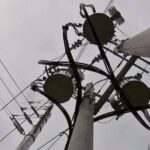By JOEL C. ESCOL, Managing Editor
CAGAYAN DE ORO CITY – City Councilor Romeo Calizo, chair of the committee on public order and safety, has confirmed to the media the existence of Philippine Offshore Gaming Operations (POGO) hub in this city.
In an interview with Magnum Radio, Calizo said the POGO hub was situated at a business center in Barangay Cugman, most particularly located at Alwana Business Center.
“Kining POGO sa Cagayan de Oro nag exist man kini. In fact, it has long existed,” (This POGO actually existed in Cagayan de Oro. In fact, it has long been existing) the city councilor said.
He said the POGO hub in this city was given license and authority by the national government, so that the local government has also given a green light to it to operate, as long as the city receives the proper taxes and other fees.
“Tungod kay ang assumption sa syudad they have the authority to run the business wala lang nato kini gibalibali. As long as it does not pose a security threat to the City of Cagayan de Oro,” Councilor Calizo explained.
MDN tried to contact the management of Alwana Business Center to shed light on the confirmation of Councilor Calizo but all efforts proved futile.
POGO IN BAD LIGHT
The POGO business was put in bad light in recent years due to the reported crimes and alleged human trafficking, including the existence of illegal Pogo’s.
The Philippine Offshore Gaming Operators (POGO) industry has been the subject of controversy in recent years, leading to a negative perception among the public. Once seen as a booming sector, generating significant revenue for the government, the POGO business has since faced several issues that have tarnished its reputation.
One major reason is the rise in criminal activities associated with the industry. Reports of human trafficking, illegal detention, prostitution, and money laundering linked to POGO operations have sparked public outrage. Several cases surfaced where foreign workers, particularly Chinese nationals, were lured into the country with promises of high-paying jobs, only to be forced into illegal online gambling operations. These incidents painted POGO as a hub for illicit activities, further tarnishing its image.
Moreover, the lack of proper regulation has allowed these issues to proliferate. Although the Philippine government initially welcomed POGOs as a lucrative source of income, the sector grew rapidly without sufficient oversight. Regulatory gaps allowed operators to skirt around labor laws, tax regulations, and even immigration requirements. This has led to tax evasion on a large scale, with the Bureau of Internal Revenue (BIR) struggling to collect billions in unpaid taxes from both operators and their foreign employees.
The influx of foreign workers also contributed to social tensions. Local communities have raised concerns about the increased presence of Chinese workers, leading to competition for housing and other resources. The rapid growth of POGO offices and residential complexes has strained local infrastructure, fueling resentment among Filipino residents.
Additionally, geopolitical tensions have added to the negative perception of POGOs. The majority of POGO employees are Chinese nationals, and the Chinese government has expressed concern about its citizens participating in illegal gambling activities overseas. This has placed the Philippines in an uncomfortable position, as it balances economic gains from the industry with diplomatic pressure from China.
In response to these issues, the Philippine government has considered stricter regulations and even shutting down some POGO operations. Several lawmakers have called for a comprehensive review of the industry to determine whether its economic benefits outweigh the social and criminal problems it has brought to the country.
Overall, the combination of criminal associations, regulatory failures, social tensions, and geopolitical concerns has significantly tarnished the reputation of the POGO industry in the Philippines.



